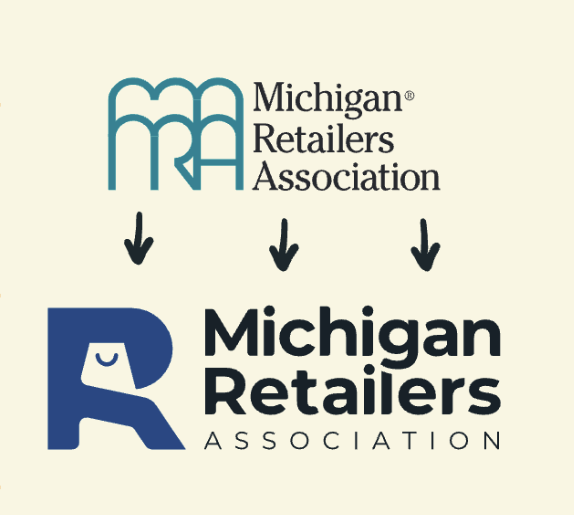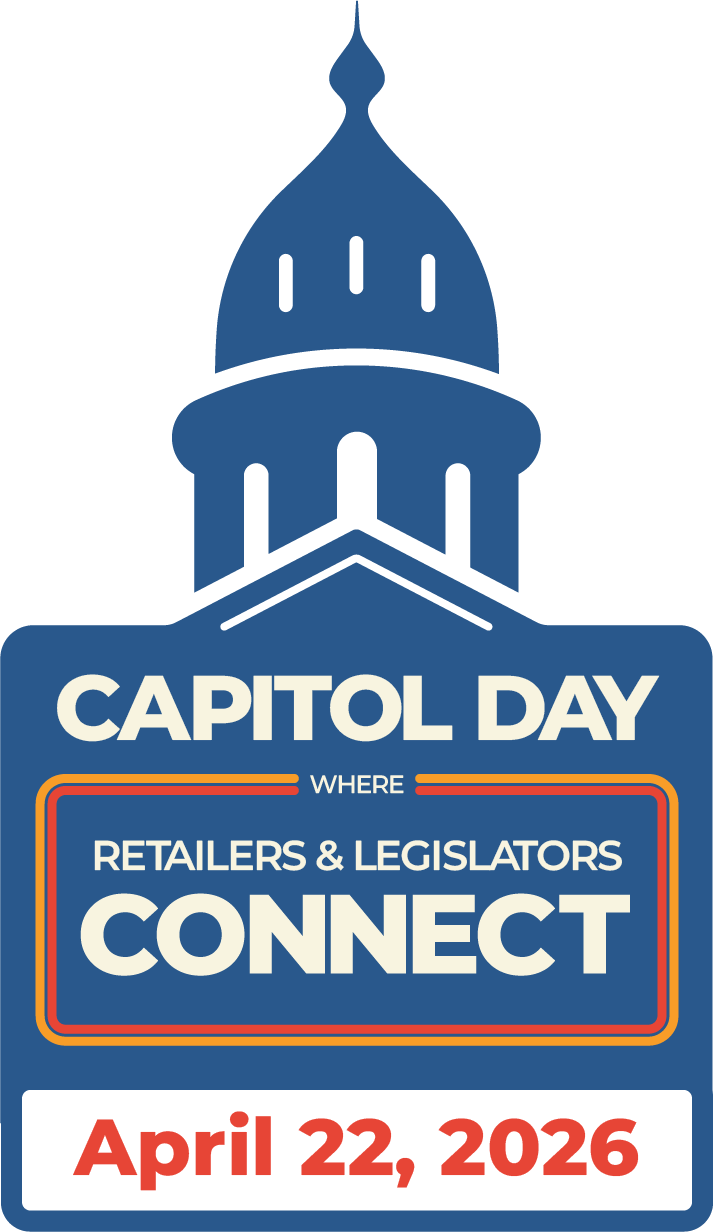November ballot could see many proposals that impact retailers
While it’s still early in the year, MRA has been keeping a close eye on several proposed ballot proposals including two that would raise Michigan’s minimum wage to $12 an hour and mandate paid leave policies. The minimum wage proposal would raise the state’s minimum wage for all workers to $12/hour by Jan. 1, 2022 and index it to inflation in following years. The wage would increase to $10.00 by 1/1/19, $10.65 by 1/1/20, $11.35 by 1/1/21, and $12.00 by 1/1/22. It would eliminate the tipped wage and require overtime pay (1.5 times the rate) for work in excess of 40 hours a week. The paid leave proposal would require employers provide one hour of sick time for every 30 hours worked. Employees could use the time for personal or family health reasons (including assault or domestic violence) and meetings at a child’s school. Small businesses (fewer than 10 employees) must allow an employee to use up to 40 hours annually. All other businesses must allow up to 72 hours of sick time annually. Unused sick time would carry over each year.
Both proposals are legislative initiatives, which means if enough signatures are gathered that the legislature will have the first opportunity to approve the proposals. If the legislature does not approve the proposal, then it will appear on the November ballot. Other ballot initiatives include an effort to legalize marijuana, implement a part-time legislature, change the redistricting process, and require 30 percent of Michigan’s energy be produced by renewable resources by 2030.
Ballot committees must file regular reports detailing the funds they’ve raised and spent. A report filed in February showed that the minimum wage and paid leave committees are raising significant amounts of money and are actively gathering signatures (252,523 valid signatures are required by May 30) to put these proposals on the ballot.
It’s important to carefully read any petitions before signing them. Petition signature gatherers are often paid per signature and there is no requirement that they accurately describe the proposal.
MRA has not taken a formal position on the any of the pending ballot proposals at this point but we do have several concerns with the requirements laid out in the various proposals. We will keep members updated on their status.
Other important items to note:
- Beer growlers: Legislation allowing SDM licensed-merchants to fill and sell beer growlers was signed into law by the governor on February 20 as Public Act 40 of 2018. HB 5175 extends the current law, which only applies to merchants with SDD licenses, to those with SDM licenses as well. License holders will be required to comply with food service regulations as they relate to keg draft lines. The bill takes effect on May 29. Next step: None. MRA position: Support.
- Food/cash assistance card changes: A bill that would require food and cash assistance cards to include a photo of the individual received a hearing in the House Families, Children and Seniors Committee last week. In order to achieve this, the state would need to obtain a waiver from the federal government. It is unclear whether the committee will hold a vote on HB 5560. Next step: House Families, Children and Seniors Committee vote. MRA position: Monitoring.
- Michigan Craft Beverage Council membership and duties: The House approved legislation last week that seeks to expand membership on the newly renamed Michigan Craft Beverage Council (formerly known as the Grape and Wine Council) and the duties of the council. HB 4667–4668 update references to the council throughout statute and would expand the council to include brewers and distillers. The House added language that prohibits a lobbyist from serving on the council and includes new duties related to marketing and education on craft beer and spirits. Next step: Senate Agriculture Committee. | MRA Position: Neutral.
- Interview questions: Legislation to add the interview process to the list of labor and benefit issues local governments cannot regulate was approved by the House Commerce Committee. SB 353 would prohibit local units of government from adopting, enforcing, or administering local ordinances, policies, or resolutions regulating the information an employer must request, require, or exclude during the interview process. The bill was introduced after local governments in New York attempted to prohibit employers from asking job applicants their previous salary during the interview process. Next step: House floor. | MRA Position: Support.
- Reproductive insurance coverage: SB 833 and 835 would add a requirement that employers provide information about insurance coverage related to reproductive health choices. Next step: Senate Health Policy Committee. MRA position: Monitoring.
- Unemployment appeals process: HB 5677, introduced last week, would increase the amount of time to appeal a determination by the unemployment agency from 30 days to 60 days. The bill would also reduce the fines by half for employers who are delinquent in filing accurate wage detail reports. Next step: House Oversight Committee. | MRA Position: Support.
- Biosimilars: Last week, Gov. Snyder signed HB 4472 into law as Public Act 41 of 2018. Work now begins on updating some archaic language that was in the same section of statute. Legislators could introduce a bill this week that makes the changes we requested. Next step: None. MRA Position: Oppose.
- Contraceptives: Legislation recently introduced as SB 831 would require pharmacists provide contraceptives without any delay. The bill would remove a pharmacist from refusing to dispense due to a religious or other personal reason. Only professional judgement, lack of product availability or the individual’s inability to pay could delay dispensing of contraceptives. Next step: Senate Health Policy. MRA Position: Monitoring.
- Tianeptine sodium: SB 801, which would add tianeptine sodium as a Schedule II drug, received a hearing in the House Law and Justice Committee last week. Tianeptine is used as an antidepressant with anxiety-reducing and mood elevating properties. The drug has been banned in some countries because of high levels of abuse and is not Food and Drug Administration-approved. It is not available for purchase in the United States but can be ordered online and imported. Next step: House Law and Justice Committee vote. | MRA Position: Monitoring.
- Benefit eligibility: A bill that would extend the timeframe government assistance benefits are available to an individual after the individual gets married was approved by the Senate last week. SB 752 would allow an individual to continue receiving benefits for an additional 18 months. The Senate amended the bill to have it take effect on Jan. 1, 2019. Next step: House Families, Children and Seniors Committee. | MRA Position: Monitoring.
- Hospice patient controlled substance exemption: HB 5668 and HB 5678, introduced last week, would both exempt hospice patients from the requirement that a Michigan Automated Prescription System (MAPS) must be run prior to a Schedule 2-5 controlled substance being dispensed. Next step: House Health Policy Committee. MRA Position: Monitoring.
- Insurance company data security notice: The House Insurance Committee recently reported a bill that would require insurance companies disclose any security breaches to Michigan’s Department of Insurance and Financial Services. HB 5275, as reported by the committee, was modified to make the notice separate from the annual statement and is due on or before March 1. Next step: House Insurance Committee vote. MRA Position: Monitoring.
- Local dog breed restrictions: Legislation recently introduced as SB 741 received a hearing in the Senate Judiciary Committee. The bill would prohibit local units of government from enacting or enforcing ordinances, policies, resolutions or rules regulating a dog based on breed or perceived breed. Next step: Senate Judiciary Committee vote. | MRA Position: Support.
- Next generation 9-1-1: A bill that recommends increasing fees to pay for updates to the state’s 911 system was approved by the House and is on its way to the governor. SB 400 would increase the monthly 911 charge from 19 cents to 25 cents. Prepaid wireless 911 surcharges would increase from 1.92 percent to 4.19 percent per transaction. If approved, the Public Service Commission will be required to analyze how much the 911 system needs to implement updates and submit a report by Dec. 1, 2020. Next step: Governor’s signature. MRA Position: Oppose.
- Nitrous oxide canisters: Last week, the House Regulatory Reform Committee approved HB 5463, a bill that would prohibit the sale or delivery of nitrous oxide canisters to minors. The bill attempts to solve the problem of teens using “whip-its” to get high. Misused nitrous oxide can cause brain damage and even death. The canisters are most commonly used to make whipped cream. Next step: House floor. | MRA Position: Monitoring.
- Secondhand dealer hold process: The House Commerce Committee approved legislation last week that would clarify the hold process for items received by secondhand shops when law enforcement has requested a hold. HB 5256 creates a formal process for law enforcement to request an additional 90-day hold. The bill is similar to HB 4887, which addresses the same issue for pawn shops and was approved by the House Commerce Committee in November. Next step: House Commerce Committee. | MRA Position: Monitoring.
- Bottled water tax: Legislation introduced as HB 5656 would impose a new tax on water that is bottled from a non-municipal source. A companion bill, HB 5657 seeks to protect water as a resource under the public trust. Next step: House Natural Resources Committee. | MRA Position: Monitoring.
- Broadband investment: A bill recently introduced as HB 5670 would create the Michigan broadband investment act and creates a board to identify underserved areas and award grants to fund projects. Next step: House Communications and Technology Committee. | MRA Position: Support.
- Credit freeze: The Senate Banking and Financial Services Committee approved legislation last week that would prohibit a consumer reporting agency from assessing fees to place or remove a credit freeze. HB 5094 is in response to the Equifax data breach and subsequent fees that are assessed to freeze or unfreeze credit reports. Next step: Senate floor. | MRA Position: Neutral.






